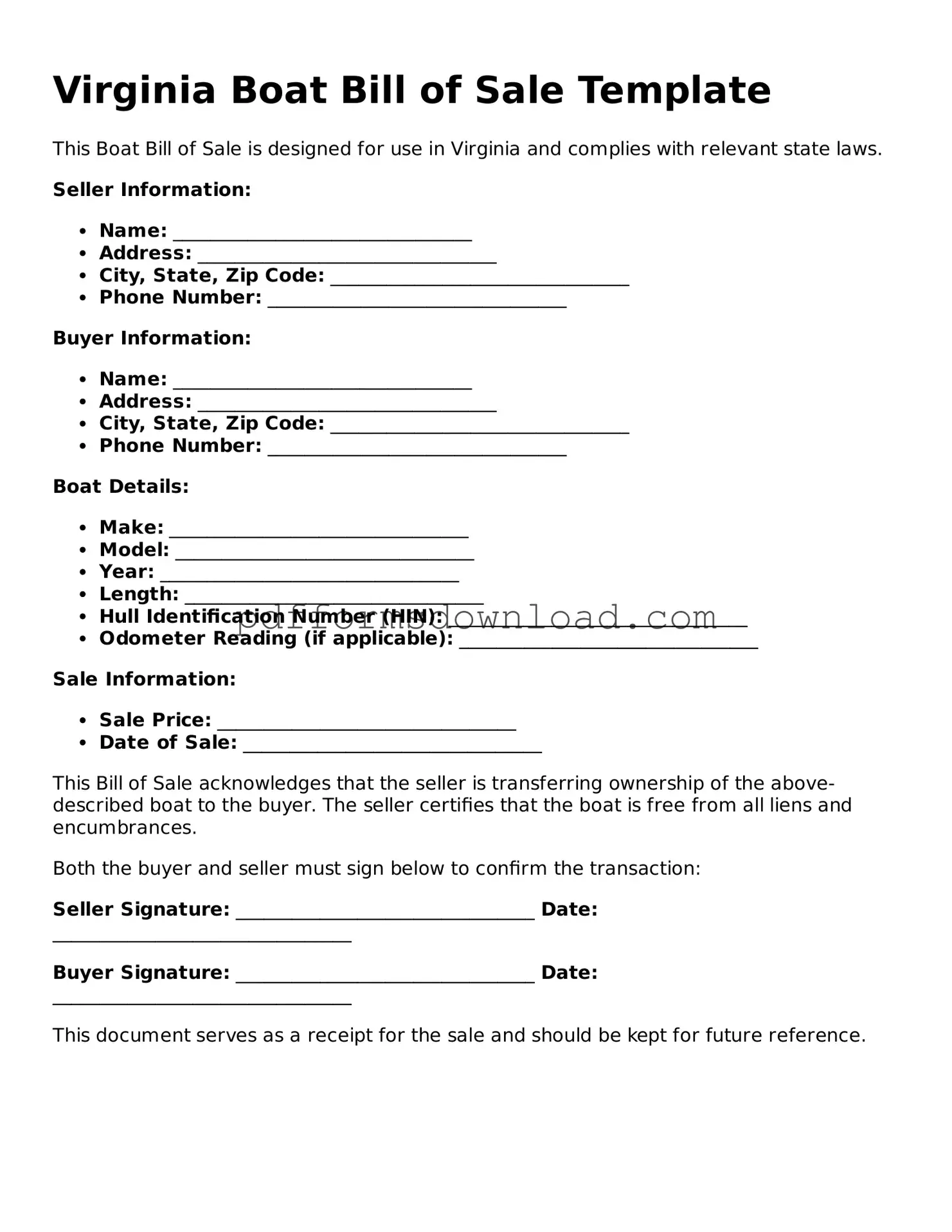What is a Virginia Boat Bill of Sale?
A Virginia Boat Bill of Sale is a legal document that serves as proof of the transfer of ownership for a boat from one person to another. This document is essential for both buyers and sellers, as it provides a record of the transaction and helps establish clear ownership rights. It typically includes information about the boat, the parties involved, and the terms of the sale.
Why do I need a Bill of Sale for a boat in Virginia?
In Virginia, a Bill of Sale is important for several reasons. First, it protects both the buyer and the seller by documenting the sale and the agreed-upon terms. Second, it is often required when registering the boat with the Virginia Department of Wildlife Resources. Having a Bill of Sale can also help resolve any disputes that may arise regarding the ownership or condition of the boat.
What information should be included in the Virginia Boat Bill of Sale?
The Bill of Sale should include key details such as the names and addresses of both the buyer and the seller, a description of the boat (including make, model, year, and hull identification number), the sale price, and the date of the transaction. Additionally, it is beneficial to include any warranties or disclosures regarding the boat's condition.
Is a Bill of Sale required for all boat sales in Virginia?
While it is not legally required for all boat sales, having a Bill of Sale is highly recommended. It is especially important for sales involving motorized boats or when the buyer intends to register the boat. In cases where the boat is valued over a certain amount, a Bill of Sale may be necessary for tax purposes as well.
Can I create my own Bill of Sale for a boat?
Yes, you can create your own Bill of Sale for a boat in Virginia. There are no specific state forms mandated, but it is crucial to ensure that all necessary information is included. Many templates are available online that can guide you in creating a comprehensive and legally sound document.
Do I need to have the Bill of Sale notarized?
Notarization is not a requirement for a Bill of Sale in Virginia; however, having it notarized can add an extra layer of authenticity and may be beneficial in case of disputes. It can serve as a formal acknowledgment of the transaction, which may help in future dealings.
What should I do after completing the Bill of Sale?
After completing the Bill of Sale, both the buyer and seller should keep a copy for their records. The seller should also ensure that the buyer registers the boat with the Virginia Department of Wildlife Resources, using the Bill of Sale as proof of ownership. This step is crucial for the buyer to legally operate the boat on Virginia waters.

